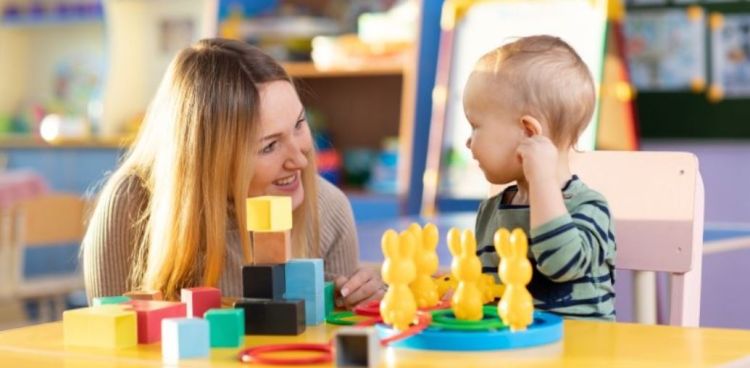International Day of Education: research reveals the impact of early childhood education and care on attainment gaps

To celebrate International Day of Education, the University of Leeds is highlighting key findings from university projects focusing on different aspects of education.
Early Childhood Education and Care (ECEC) attendance boosted preschoolers’ learning and preparedness for school in the year after the first COVID-19 lockdown, with greater gains made by children from less advantaged backgrounds, researchers from the Faculty of Arts, Humanities and Cultures have found.
171 UK families provided information about their 5-to-23-month olds’ attendance at ECEC (March 2020 to March 2021), their child’s skills in vocabulary, thinking, and emotional regulation, as well as the communication, problem-solving, and personal-social skills needed for starting school.
The researchers, led by Dr Catherine Davies, Professor of Language Development in the School of Languages, Cultures and Societies, analysed changes in children’s abilities relative to the ECEC they had received during COVID. They found that children who attended more ECEC during the pandemic could understand an average of 16 more new words over the first year of the pandemic, significantly more than peers who did not attend formal childcare.
The benefits of ECEC were even more pronounced for children from disadvantaged backgrounds, whose communication and problem-solving skills improved the longer they spent in ECEC settings.
The findings of the project, carried out in collaboration with researchers at Oxford Brookes University, University of Oxford, Leeds Beckett University and University of Warwick, have prompted the team to call for education policy reforms, including support for lower-income families to access Early Childhood Education and Care, and better promotion of the role of ECEC for children’s development, such as highlighting its provision of education as well as care.
Dr Catherine Davies, Professor of Language Development in the School of Languages, Cultures and Societies at the University of Leeds, said:
Our findings demonstrate the importance of early years education for children born without social advantage, helping to narrow the gap in early development and level socioeconomic inequalities. It's essential that we facilitate access for the families who will benefit most from this support at this crucial stage in youngsters' lives.
Professor Jeff Grabill, Deputy Vice-Chancellor: Student Education, said:
Our world leading research in early years and education tackles key areas where our research can improve the lives of young children across education, public policy and health. Our long-term vision will transform social care and child health and deliver a sustainable programme which will benefit our students, staff, local community and partnerships across the globe.
Read more about how researchers at the University of Leeds are driving change in education and the early years sector.



